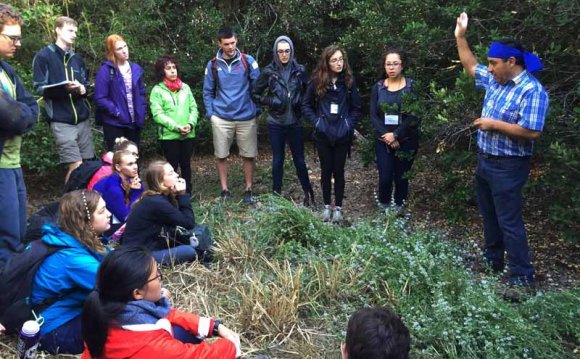
 Within next 10 years, the usa populace will grow considerably older plus diverse. The minority older populace will triple by 2030, whenever one quarter associated with senior population will belong to a minority racial or ethnic team (United States Census Bureau, January 2000). Different racial and ethnic groups have actually diverse philosophy and attitudes about health insurance and drugs, that may influence adherence to therapy.A failure to appreciate these differences may subscribe to misunderstanding or miscommunication about health care.
Within next 10 years, the usa populace will grow considerably older plus diverse. The minority older populace will triple by 2030, whenever one quarter associated with senior population will belong to a minority racial or ethnic team (United States Census Bureau, January 2000). Different racial and ethnic groups have actually diverse philosophy and attitudes about health insurance and drugs, that may influence adherence to therapy.A failure to appreciate these differences may subscribe to misunderstanding or miscommunication about health care.
No one list can determine the values that older grownups may place on medicines, or their opinions on how health and recovery happen. Every person needs to be considered separately. Listening and asking nonjudgmental concerns begins the process of understanding individuals diverse thinking and practices about health and recovery and exactly how to incorporate them into treatments to enhance medication adherence.
"community" describes built-in patterns of real human behavior offering the language, thoughts, actions, traditions, beliefs and establishments of racial, cultural, personal, or religious teams (Ca Endowment, 2003). Every culture features thinking about health, condition, therapy, and health care providers. People from the numerous immigrant countries, and American Indians, bring their opinions, and techniques that accompany them, into the health care system. This often proves challenging to medical care professionals who were been trained in the viewpoint, principles, and practices of Western medication (California Endowment, 2003).
People within any cultural group aren't homogeneous, despite the fact that they might hold many thinking, practices, and institutions in keeping. Messages and products must admire the variations within social teams. A number of the significant areas of huge difference within groups consist of academic amount, English language skills, financial resources, adherence to people customs and opinions, intimate positioning, geographical place, health status, and preferred language.
In cultures in which elders get great value, particularly in the American Indian neighborhood, caring requires kindness and value without the appearance of scolding (Salimbene, 2005), regardless if non-adherence may endanger the elder's life. Trust-building comes with storytelling, hearing, respecting silence, and honoring the desires associated with the United states Indian elder (University of Washington, 2005). Due to the connection with numerous African United states elders which grew up with segregated health care and social service systems in which they faced regular discrimination, it is very important to show respect in their mind so that you can place them comfortable and establish rapport. Including at the least, using respectful forms of address (age.g., Mr., Mrs.) unless they provide the permission doing usually (University of Washington, 2005).
Predicated on personal history and experience, numerous African Americans may view getting healthcare as a degrading, demeaning, or humiliating knowledge. Some might even worry or resent health centers due to the lengthy waits, health jargon, feelings of racism or segregation, lack of identification, and a feeling of powerlessness and alienation into the system (Spector, 2000).
The African US experience in America features left many African People in america mistrustful of conventional organizations and providers that people in the dominant culture. The 40-year Tuskegee Experiment, which recruited African US males with syphilis to-be part of a research project where these people were guaranteed but never given therapy, is notorious in the African American neighborhood. Memories of these techniques, besides the widespread discrimination most have actually experienced inside their lifetimes, will likely provide reasons for African United states elders to be a lot more than some suspicious of medical care providers, specially those that advise any kind of experimental treatment or analysis (Stanford University). Inside United states Indian or local United states tradition, there's historical mistrust of main-stream establishments considering hundreds of years of abuses such as for instance broken treaties and pushed relocations. Acknowledging this record is a vital help building trust utilizing the individual and their family (University of Washington, 2005).
Religion, spirituality, and kinship ties may have a crucial role in older adults' understanding and treatment of infection. Some older adults may see disease and death as an all-natural section of life, or think disease is caused by all-natural causes, improper diet or eating habits, experience of cold atmosphere or wind, the might of Jesus for poor behavior, or deficiencies in spiritual balance. Some older grownups may wait seeking health care, preferring self-treatment and giving Jesus a chance to heal, or may seek attention from folk healers, put guidance, home made remedies, and prayer to take care of disease.
For example, the Latino older person may see disease as an instability between external and internal forces, and may even look for health care from people healers (University of Washington, 2005). Numerous US Indians think that harmony among the list of human body, heart, mind, and heart contributes to one's overall health (University of Washington, 2005), and therefore illness could be caused by the busting of sacred tribal taboos, harmful interactions with people or nature, or by witchcraft (Salimbene, 2005). Anyone may turn to Western medication for treatment of signs and symptoms of infection, but might also look for conventional healers to address the disharmony that caused the illness (University of Washington, 2005). In Hinduism what the law states of cause-and-effect (karma), what type creates through ideas, terms, and deeds, may end in disease or accidents as a way to purification. Karma is known to accrue over numerous lifetimes; hence, a condition might be regarded as a direct result actions within life or a past life. Recognition of one's karma may affect a person's mindset toward health intervention (University of Virginia, 2004).
When you look at the Chinese culture, health might be seen as finding balance between complementary energies (known as yin and yang), such as for instance cool and hot, or dark and light (University of Washington, 2005). Cultures after Chinese or Ayurvedic wellness philosophy may take to standard approaches to managing illness initially, such as for example using foods and herbs to restore yin/yang stability, and can seek Western health care if these remedies fail. The traditional systems of medicine tend to be believed to get rid of the reason for the sickness, and as a consequence, some Asian ethnic teams rely on old-fashioned treatments for long-lasting therapy (Institute for Safe prescription Practice, 2003).
Older grownups in a few countries, such as for instance Chinese, Vietnamese, and Latino, are more likely to try home treatments, such as for example herbal solutions or particular foods, before attempting american medicine. If a person thinks the attention supplier may disapprove, they might not be forthcoming with details about employing nontraditional cures. This may bring about drug-food or drug-drug interactions with recommended medications.
Cultural thinking could also dictate exactly how health information is disseminated or gotten. Like, in certain Arab cultures its preferable for a family group or neighborhood member to do something as a "buffer, " communicating right using the physician then speaking about findings with the patient. In Latino culture, mom determines whenever a family member needs medical care; a man mind associated with the home offers authorization to get health care bills (University of Washington, 2005). For other countries, multiple dependable origin must make provision for the data, particularly a physician, religious frontrunner, or family members elder.
YOU MIGHT ALSO LIKE












